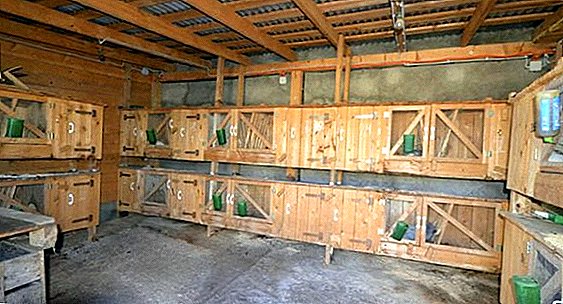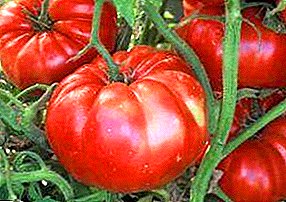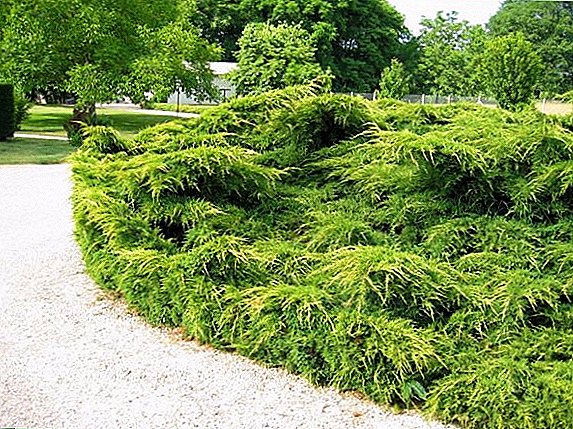 Rabbits are almost omnivorous animals, but there is a root vegetable that contains nutrients that are not found anywhere else - Jerusalem artichoke. This plant, known throughout the world and very useful not only for people but also for rabbits.
Rabbits are almost omnivorous animals, but there is a root vegetable that contains nutrients that are not found anywhere else - Jerusalem artichoke. This plant, known throughout the world and very useful not only for people but also for rabbits.
Can rabbits have Jerusalem artichoke?
The introduction of this root in the menu of animals will affect favorably on their health. Despite the fact that the taste of Jerusalem artichoke resembles potatoes, it is much more useful. It contains vitamins B1 and B2, as well as vitamin C.  It also contains various trace elements: silicon, magnesium, iron, calcium, phosphorus. In addition, in contrast to a large number of other feeds, insulin polysaccharide is present in the Jerusalem artichoke, which purifies the blood of toxins, slags and radionuclides.
It also contains various trace elements: silicon, magnesium, iron, calcium, phosphorus. In addition, in contrast to a large number of other feeds, insulin polysaccharide is present in the Jerusalem artichoke, which purifies the blood of toxins, slags and radionuclides.
Did you know? Insulin is broken down during the digestion process to fructose. And as you know, this substance is easier absorbed by the body, is more useful and helps to gain weight. In addition, undigested residues help the body fight toxins and remove them from the body.
The advantage of topinambur is as follows:
- It stimulates the appetite, which has a beneficial effect on weight gain.
- A large amount of carbohydrates provides pets with the necessary amount of energy.
- Strengthens immunity due to the high content of vitamins and minerals.
- In lactating rabbits, this root crop increases milk production.
- Improves bowel function.
- Removes toxins.
Find out whether it is possible to give rabbits, nettles, bread and crackers, wormwood, beets, dill, pumpkin, and zucchini to rabbits.
Feeding rules
Like any other food, Jerusalem artichoke must be given to rabbits according to the rules. Consider how to properly feed it with us eagles and at what age it can be done.
From what age can
Root crops begin to enter into the diet baby rabbits after they reach the age of 3 months. 
How to give
Both underground and aboveground parts of the plant can be used as feed. It is important that the rabbits do not overeat. At 3 months of age, the daily ration of eared animals includes only 25 g of Jerusalem artichoke.
Important! Pulp of Jerusalem artichoke necessarily subject to heat treatment.
At first, you need to monitor how the animal reacts to a new food, and if there are no problems, then the amount of the product increases. Adults can eat about 250 grams of this root per day. In its pure form it is rarely fed, most often the Jerusalem artichoke is given along with silage or added to mash.  The upper part of the plant is also loved by rabbits, as it is not only juicy, but also has a sweetish taste. However, it is important that the tops were dried, for this they tear it down and leave it in the sun for 5 hours. The stems are used for grinding rabbit teeth, and the tops are mixed with other herbs and given in the form of mixtures. The total share of this plant should not exceed 30% of the total composition of succulent feed.
The upper part of the plant is also loved by rabbits, as it is not only juicy, but also has a sweetish taste. However, it is important that the tops were dried, for this they tear it down and leave it in the sun for 5 hours. The stems are used for grinding rabbit teeth, and the tops are mixed with other herbs and given in the form of mixtures. The total share of this plant should not exceed 30% of the total composition of succulent feed.
Harm of Jerusalem artichoke
The root crop itself is not harmful, but due to its taste it can still be dangerous. It lies in the usual overeating and, accordingly, in the resulting problems with digestion. There may also be problems in the form of gases or heaviness in the intestine after the young rabbits have eaten Jerusalem artichoke raw, as it contains a large amount of coarse fibers.
Important! Before serving, the tubers should be thoroughly washed, cleaned up with all the sand and dirt. Moldy and rotten tubers should not be added to the diet. This is necessary in order to negate the risk of digestive upset.
What else can feed the rabbits
In addition to Jerusalem artichoke, rabbits can also be fed with other feeds:
- Green grass. Before serving, it is slightly attached to the sun.
- Quality hay. It should be dry and free from unpleasant odors. If it is crushed, it is crushed into flour and filled with warm water. After some time, the liquid is drained, and the resulting mass is mixed with the feed.
- Various root vegetables. They are given raw, after clearing them from the ground and cutting them into pieces.
- Cabbage. Mix it with hay and grass, give in small quantities.
- Silage. Must be fresh and dry. It is mixed with mixed feed.
- Cereals. This feed is crushed on a mandatory basis. Legumes pre-soaked, and then give, adding to the total mass.
- Mineral Supplements combine with boiled potatoes or mixed fodder.
 As you can see, special problems with Jerusalem artichokes in the nutrition of rabbits should not appear. The main thing is to follow the rules of feeding, and then your pets will always be well-fed and contented.
As you can see, special problems with Jerusalem artichokes in the nutrition of rabbits should not appear. The main thing is to follow the rules of feeding, and then your pets will always be well-fed and contented.Reviews:














